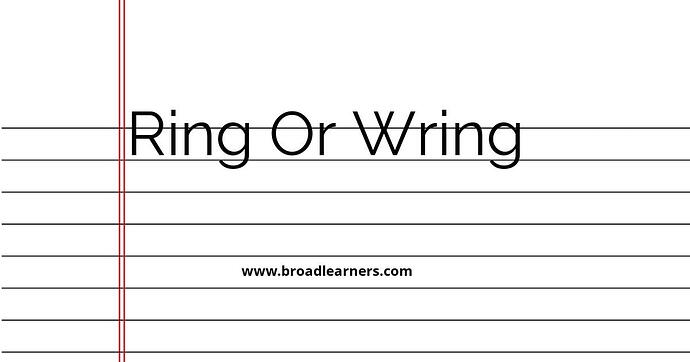'Ring' and 'wring' are commonly confused words in English grammar. Understanding the difference between 'ring' and 'wring' is important to use them correctly in written and spoken English.
'Ring' is a verb that means to make a sound or to call someone using a telephone. It can also refer to wearing a piece of jewelry on one's finger.
'Wring' is also a verb that means to twist or squeeze something forcefully, usually to remove liquid from it.
Let's take a closer look at the meanings and usage of 'ring' and 'wring'.
| 'Ring' | 'Wring' |
|---|---|
| The word 'ring' is used to indicate making a sound or calling someone. | The word 'wring' is used to indicate twisting or squeezing something forcefully. |
|
|
To remember the difference between 'ring' and 'wring', it can be helpful to remember that 'ring' is often associated with sound or communication (such as a telephone ringing or calling someone), while 'wring' is associated with twisting or squeezing something forcefully (such as wringing out a wet towel).
Here are some examples of correct usage:
- The doorbell is ringing. (making a sound)
- He rings his mother every Sunday. (calling someone)
- She loves to wear a diamond ring. (referring to a piece of jewelry)
- She wrung out the wet clothes before hanging them to dry. (removing liquid forcefully)
- He wrings his hands when he's nervous. (expressing emotion through a physical action)
Remembering the correct usage of 'ring' and 'wring' will improve your grammar and communication skills.
